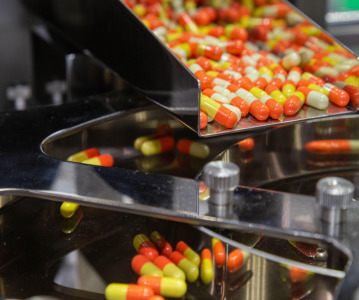Cobra Biologics and Tecrea Awarded £112K Innovate UK Grant to Develop AAV Scalable Production Bioprocess

Cobra Biologics, an international CDMO of biologics and pharmaceuticals, and Tecrea, a cell delivery biotechnology company, have been awarded a 15-month collaborative grant of £112,291 ($166,000 USD) by the UK’s innovation agency, Innovate UK for the development of a scalable Adeno Associated Virus (AAV) production bioprocess.
The grant is awarded under Innovate UK’s ‘Technology Inspired Innovation’ competition, which aims to stimulate innovation within biosciences, identified by UK government as one of four key enabling technology areas.
The collaboration between Cobra Biologics and Tecrea focuses on the development of a robust, large-scale bioprocess for AAV production. AAV is a safe and effective gene therapy vector with a growing commercial demand that cannot be met by current, non-scalable production approaches. The new system aims to achieve scalable GMP production of AAV at low cost by combining NanoCargo, an efficient, low toxicity nanoparticle-based transfection system from Tecrea with Cobra’s small footprint hollow fibre bioreactors and manufacturing expertise.
Dr Daniel Smith, CSO Cobra Biologics, commented: “We are looking forward to collaborating closely with Tecrea, and their innovative delivery system. This is a very exciting project for Cobra, as it has the potential to expand our current viral production offering for AAV, providing a scalable route for viral vector production using a transient transfection approach.”
Dr John Ridden, Director at Tecrea, said: “We are delighted to be working with Cobra Biologics on this project. This grant is a great opportunity for us to move our exciting nanotechnology delivery platform into large-scale transfection, which in turn could result in significant improvements in the production of new therapies.”
Related News
-
News Pharmapack Awards 2024 Patient-Centric Design Award Winner – Dr Ferrer BioPharma
The 2024 Pharmapack Awards celebrated the best in innovation and design for the pharmaceutical packaging and drug delivery industry on January 24, 2024. -
News Women in Pharma: Minding the Gap at Pharmapack 2024
2024 marks the first year Pharmapack will host a Diversity track dedicated to bridging the gap within the pharmaceutical packaging and drug delivery sector. The track includes a panel discussion on 'Enabling Diversity in the Workplace,' focused... -
News Pharmapack Awards 2024 - Celebrating Packaging and Drug Delivery Innovation
The 2024 Pharmapack Innovation Awards ceremony celebrated the best in pharmaceutical packaging and drug delivery innovation at all levels. The awards were held on January 24, 2024 at the Paris Expo Porte de Versailles. -
News 2024 Pharma Industry Trends Outlook: Collaboration, Market Maturity, and Digital Futures
The annual CPHI Online 2024 Pharma Trends Outlook, in partnership with Arvato Systems, identifies 12 key industry trends shaping the life sciences industry in the coming year. -
News New Novo Nordisk AI hub for drug discovery to open in London, UK
Danish pharmaceutical giant Novo Nordisk will be opening an AI-based research facility in the heart of London to advance drug discovery operations. -
News BioNTech to begin mRNA vaccine manufacturing in Rwanda by 2025
German biotechnology company BioNTech has stated their intentions to begin production at their mRNA vaccine factory in Rwanda by 2025, which will mark the first foreign mRNA vaccine manufacturing site on the continent of Africa. -
News Women in Pharma: Looking back on 2023 and moving forward to 2024
In this monthly series, we interview women from across the pharmaceutical industry and supply chain to discuss the importance of gender diversity in healthcare, the workplace, and beyond. -
News CPHI Barcelona 2023: Partnering for Success – Managing Outsourcing Relationships to Optimise Manufacturing Operations
During CPHI Barcelona 2023, insightful content sessions offered attendees the chance to explore trending topics with expert speakers and panellists. Here, we summarise what the pharma industry and supply chain are talking about the most.
Position your company at the heart of the global Pharma industry with a CPHI Online membership
-
Your products and solutions visible to thousands of visitors within the largest Pharma marketplace
-
Generate high-quality, engaged leads for your business, all year round
-
Promote your business as the industry’s thought-leader by hosting your reports, brochures and videos within your profile
-
Your company’s profile boosted at all participating CPHI events
-
An easy-to-use platform with a detailed dashboard showing your leads and performance







